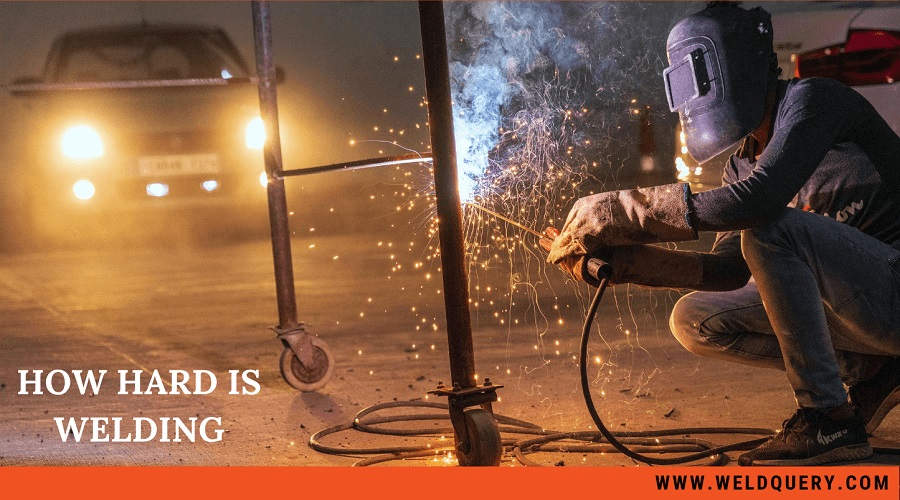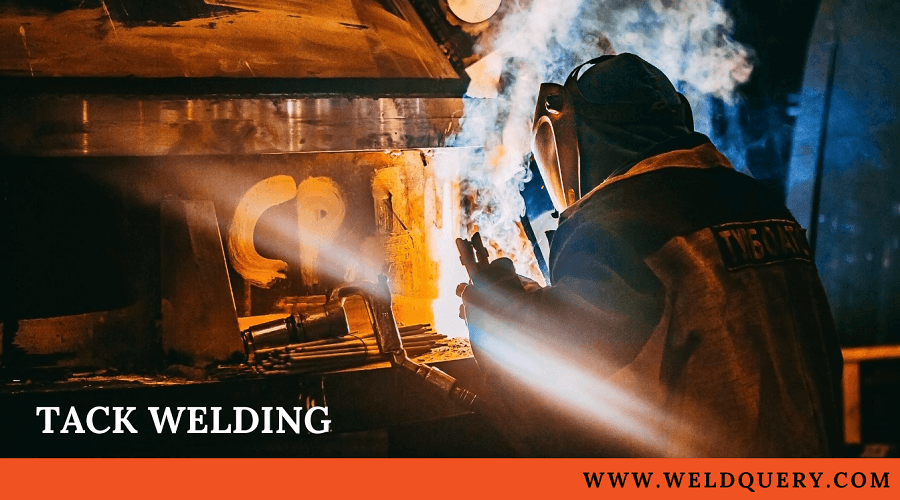Before reading this article you must think deeply about how to become a pipeline welder.
Let’s try to turn your deepest thoughts into reality by expressing them in simple, fluent language.
Hard to believe? Then bear with me because I will walk you through the whole process. Let’s dive in.
Contents
Who Are The Pipeline Welders?
It is impossible to build a city without pipelines. It is like the veins of a city through which water, gas, oil, and much more flow. Without which any work in your house is impossible. Needless to say, leading your life without these is such a big threat. Thus, Pipelines are a big concern for our daily lives.
So the main question remains, what is the job of a pipeline welder? They repair, construct, replace pipes and pipelines. It is as simple as that. Let’s dig a little deeper.
Pipeline welders, plumbers, steamfitters, you can put them in the same category. All of them deal with pipes and pipelines.
However, they can be distinguished based on the aspects of their work. Steamfitters basically work with the pipes that supply the steam, Plumbers work with pipes that are connected to the water supply.
Pipeline welders, on the other hand, work with gas, acid, chemical supply pipes, and pipelines. The job of a pipeline welder is to determine how many materials will be needed for a project according to the type of material. The task of transporting these materials comes upon them.
What Are The Job Descriptions of Pipeline Welders?
Pipeline welders are mainly employed by manufacturers and fabricators. They search for pipeline welders that are capable of working in both indoor and outdoor environments.
So pipeline welders need to be much more adaptable and intelligent to adapt to this environment.
Well, Why is that? The reason is, Outdoor environment is the work of physical labor as they have to travel to different parts of the country to install the pipes. Indoor work, on the other hand, is about solving a variety of complex problems. Besides, they have to interpret different types of blueprints. Those who work full-time here usually work overtime hours.
In short, we can say that as a Pipeline welder, you can work in construction sites, petroleum industry, factories, manufacturing industries, nuclear energy plants, military sectors, etc.
How To Get Into The Pipeline Welder Profession?
The pipeline welder sector is not so easy for those who talk more but do less. It is a very challenging job for anyone. You must have a certain level of experience to be employed in pipeline welders.
Well, what are the features that will help you get into the pipeline welder profession? Let’s focus on that:
Hands-on Experience:
Hand-to-hand learning is essential for any type of labor. Since the profession of pipeline welders is labor work, No one can enter this job without prior knowledge. They have to have a certain level of work skills before entering this profession.
At the interview, they will take some live tests from you from the beginning. You will be given a job and you will have to demonstrate it according to your skills. A good welder can easily judge what kind of welder you are producing and how much skill you have in this field.
So never assume in front of them that you are very skilled in this field. Then the doors of this profession will be closed for you for the rest of your life.
You must be trained in welding school to join this profession because each and every task of this profession is very challenging. Especially pipe fusing in a fixed setting.
Therefore as a helper, if you want to increase your experience in this
profession, you still need to take training from welding school.
Tough Locations:
Can you swim? You probably got the right thing of what I’m trying to convey. Pipe welders have to work underwater as well which is a very risky and challenging job.
Pipe welders need to have the mentality to work in any bad environment because pipe welding has to be done in any part of the country. Whether it is raining or hot, you have to work at any cost. Besides, you may have to travel thousands of miles to transmit Pipelines.
Yes, the harder you work the more money you get. Hard work
pays off.
Proper Training:
There is always a possibility of injury to any labor profession. This is not uncommon in the case of pipe welding jobs. Therefore to avoid injury in this field, you must have to go through a proper training process.
Arc welding can be very dangerous. Its bright light can do a lot of damage to your eyes. You may end up losing your vision power for the rest of your life. Therefore, it is a very sensitive job. The more sensitive the job is, the more training it needs.
Many types of toxic gases can be emitted through pipelines, which can cause serious harm to your health. To get rid of this, pipeline welders have to go through some permanent safety procedures.
For example, they have some protective equipment to wear. A pipeline welder requires a lot of training to be able to use them
well. After passing this in-depth training process they can protect themselves from risky work. In addition, a pipeline welder needs to be trained in both manual and automated welding processes.
Underwater Welding:
I know how hard it is for you to hear the term “underwater welding”.This is one of the hardest jobs. Underwater, you have to work 10 times harder than working in a dry place. There are many obstacles to overcome when working underwater.
A pipe welder has to perform his job faster by ignoring this type of obstructive environment. They often have very little time to use the necessary materials according to quality.
The challenge may become even more difficult if the pipeline is to be fixed from outside of the water. So they always have to stay focused to overcome these obstacles. Because of these
constraints, the salary of an underwater pipeline welder is much higher than the other conventional pipeline welders.
What Are The Responsibilities?
For an employee, a job should be done with some kind of responsibility. Pipe welding jobs also have a lot more responsibility.
So, Let’s focus on the responsibilities that a pipeline welder has to perform:
- A pipeline welder has to follow proper safety regulations based on OSHA guidelines.
- They have to have the ability to understand blueprints properly.
- They have to know schematics and their application
in the field of pipe welding. - A pipe welder needs to make a good decision for
choosing proper materials. - After installing and repairing pipelines, they have to examine finished welds to ensure smoothness and their functioning.
- In addition to installing, pipe welders need to repair holes in the pipeline.
- They need to know how to operate different types of machines.
Qualification:
When it comes to pipeline welding, qualification is a big factor. Since this is a very sensitive job, prior knowledge is mandatory to achieve the job.
Let’s take a look at the qualification requirements:
- They must have a high school diploma and AWS certificate.
- If a candidate is physically weak, this job is not for him because a pipe welder works in different environments as well as carrying heavy equipment. Thus, being physically strong is a must case for a pipeline welder.
- They need to have a certain level of mathematical
skills. - They must have a welding school certificate.
- Proper welding training.
- They need to have good communication skills as
they have to work with supervisors and other constructor workers. Engaging with them frequently can make your work more accurate. - Prior knowledge about technical terms.
- A pipe welder must have the skill to interpret blueprints as
well as schematics. - They have to be punctual about time management as
they have to follow strict timetables.
A Pipeline Welder’s Salary
According to the Bureau of Labor Statistics (BLS), Pipe welders earned $69,841 as a median salary in 2020.
This illustrates that a pipe welder earned $33.58 on an hourly basis !!! Isn’t it great?
Besides, they will get insurance benefits which include
health, dental, vision, life, and retirement. In addition to overtime payments, companies offer annual bonuses as well.
Final Words:
Pipeline welding work is a demanding job. Not everyone can do this. Although the work of pipeline welding is a lot of labor, it can bring more money than other conventional work.
So if you are physically, mentally strong and if your qualifications are just right then this job is for you.


